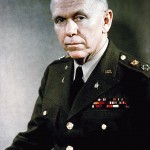Reading
When they had finished eating, Jesus said to Simon Peter, “Simon son of John, do you love me more than these?”
“Yes, Lord,” he said, “you know that I love you.”
Jesus said, “Feed my lambs.”
Again Jesus said, “Simon son of John, do you love me?”
He answered, “Yes, Lord, you know that I love you.”
Jesus said, “Take care of my sheep.”
The third time he said to him, “Simon son of John, do you love me?”
Peter was hurt because Jesus asked him the third time, “Do you love me?” He said, “Lord, you know all things; you know that I love you.” Jesus said, “Feed my sheep. (John 21:15-17 NIV)
The questions and answers
What did Jesus mean when he asked if Peter loved him “More than these?” Possible choices ( there is no agreement on which one it is):
Do you love me more than these (other disciples love me)?
Do you love me more than (you love) these (other disciples)?
Do you love me more than (you love) these things (your fishing nets and equipment)?
Types of love:
Agape = a perfect, unselfish love
Phileo = Lord, You know that I’m Your friend,” or “I’m fond of You
1. Jesus, “do you Agape me.” Peter, “I Phileo you”
2. Jesus, “do you Agape me.” Peter, “I Phileo you”
3. Jesus, “do you Phileo me.” Peter, “I Phileo you”
The commands
1. The first command Jesus gives Peter is literally translated from Greek as “pasture the lambs. As present tense it calls for continual action of care and feeding
2. The second time Jesus gives the command it literally translates as “tend My sheep” emphasizing a supervisory capacity, not only feeding but ruling over them.
3. The third time, the literal translation is a combination if the previous two commands. “pasture tend the sheep”. Here Jesus combines the different Greek words to make clear the job of the shepherd of the flock of God. They are to tend, care for, and provide spiritual food for God’s people in continual action to nourish and care for their souls, bringing them into the fullness of spiritual maturity.
Paraphrase Reading
Jesus said to Simon Peter, “Simon son of John, do you love me more perfectly and unselfishly than you do the things of your former life? (Or more than these men do?)”
“Yes, Lord,” he said, “you know that I have affection for you.”
Jesus said, “provide continual care for my lambs who are my disciples.”
Again Jesus said, “Simon son of John, do you unconditionally love me?”
He answered, “Yes, Lord, you know that I am fond of you .”
Jesus said, “be a shepherd care of my disciples like a shepherd takes care of a flock.”
The third time he said to him, “Simon son of John, do you have affection for me like a friend?”
Peter was grieved because Jesus asked him the third time, “Do you love me?”
He said, “Lord, you know all things; you know that I love you like a friend.”
Jesus said, “you are responsible for the spiritual well being of my disciples like a shepherd is responsible for nurturing his flock.
(John 21:15-17 Paraphrase)
Application
1. Change of Attitude.
Peter mourns and becomes meek
Before the denial, Peter was anything but meek…he was over confident in himself.
Peter asked, “Lord, why can’t I follow you now? I will lay down my life for you.” Then Jesus answered, “Will you really lay down your life for me? Very truly I tell you, before the rooster crows, you will disown me three times!
(John 13:37, 38 NIV)
Then Jesus told them, “This very night you will all fall away on account of me, for it is written: “ ‘I will strike the shepherd, and the sheep of the flock will be scattered.’ But after I have risen, I will go ahead of you into Galilee.”
Peter replied, “Even if all fall away on account of you, I never will.”
“Truly I tell you,” Jesus answered, “this very night, before the rooster crows, you will disown me three times.”
But Peter declared, “Even if I have to die with you, I will never disown you.” And all the other disciples said the same. (Matthew 26:31-35 NIV)
Peter was grieved. He knew the answer that Jesus was looking for but couldn’t give it.
Why didn’t he ever answer yes, I agape you? In his heart he knew it wasn’t true…he had just called curses down to deny Jesus.
Then he began to call down curses, and he swore to them, “I don’t know the man!” Immediately a rooster crowed. (Matthew 26:74 NIV)
2. On Elders. Peter handed off the responsibility to oversee and provide care for disciples to the elders.
To the elders among you, I appeal as a fellow elder and a witness of Christ’s sufferings who also will share in the glory to be revealed: Be shepherds of God’s flock that is under your care, watching over them—not because you must, but because you are willing, as God wants you to be; not pursuing dishonest gain, but eager to serve; not lording it over those entrusted to you, but being examples to the flock. And when the Chief Shepherd appears, you will receive the crown of glory that will never fade away.
In the same way, you who are younger, submit yourselves to your elders. All of you, clothe yourselves with humility toward one another, because, “God opposes the proud but shows favor to the humble.” Humble yourselves, therefore, under God’s mighty hand, that he may lift you up in due time. (1 Peter 5:1-6 NIV)
Submit.
3. Continue to follow
Peter said, I’m going fishing.”
Jesus had appeared to them two other times. Yet Peter was back to his old life. The temptation is to go back. Don’t.
4. Be ready to lead
Peter did not know—that Jesus would ascend into heaven but when he did he preached the first gospel sermon and, with the help of Jesus brother James, lead the establishment of the church.
Others tried to assert their authority on the church.
John is establishing the role of Peter.
5. There is Hope for me
Peter gave a less than perfect answer but Jesus accepted it. Jesus meets us where we are.
Like Jesus, we should extend the mercy He gives to others
Don’t think you have to be perfect. If you were you would be the rabbi not the disciple. Just continue learning from the master.
Jesus extended mercy…we should too.
Closing.
Blessed are the poor in spirit, for theirs is the kingdom of heaven.
Blessed are those who mourn, for they will be comforted.
Blessed are the meek, for they will inherit the earth.
Blessed are those who hunger and thirst for righteousness, for they will be filled.
Blessed are the merciful, for they will be shown mercy.
Blessed are the pure in heart, for they will see God.
Blessed are the peacemakers, for they will be called children of God.
Blessed are those who are persecuted because of righteousness, for theirs is the kingdom of heaven. (Matthew 5:3-10 NIV)




